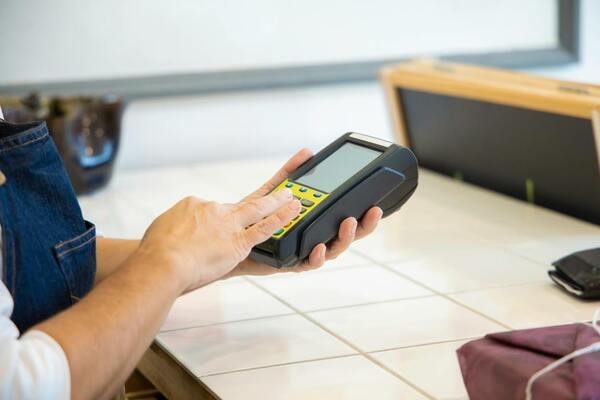Notifications
ALL BUSINESS
COMIDA
DIRECTORIES
ENTERTAINMENT
FINER THINGS
HEALTH
MARKETPLACE
MEMBER's ONLY
MONEY MATTER$
MOTIVATIONAL
NEWS & WEATHER
TECHNOLOGIA
TV NETWORKS
VIDEOS
VOTE USA 2026/2028
INVESTOR RELATIONS
COMING 2026 / 2027
ALL BUSINESS
COMIDA
DIRECTORIES
ENTERTAINMENT
FINER THINGS
HEALTH
MARKETPLACE
MEMBER's ONLY
MONEY MATTER$
MOTIVATIONAL
NEWS & WEATHER
TECHNOLOGIA
TV NETWORKS
VIDEOS
VOTE USA 2026/2028
INVESTOR RELATIONS
COMING 2026 / 2027
About Me
 MPOS System
MPOS System With a combined 40 years in the retail trenches, MHouse Business Solutions Ltd. understands the unique challenges you face. Founded by retail veterans Asif Ashraf and Faisal Sattar, the EPOS system, MPOS, was built with one core principle: empower retailers to thrive. Our easy-to-use yet powerful convenience store EPOS system goes beyond just processing transactions. We provide the tools and support to streamline operations, boost efficiency, and ultimately, increase your bottom line. Not just that but our intuitive interface, built-in business intelligence tools and dedicated customer support team also help retailers minimize errors, increase customer satisfaction, gain valuable insights, reduce costs and optimize pricing strategies.
 MPOS System -
October 3, 2024 -
Technology -
pos system
Pos system in uk
Epos system in uk
-
277 views -
0 Comments -
0 Likes -
0 Reviews
MPOS System -
October 3, 2024 -
Technology -
pos system
Pos system in uk
Epos system in uk
-
277 views -
0 Comments -
0 Likes -
0 Reviews

In today’s fast-paced retail environment, convenience stores are increasingly turning to technology to optimize operations and enhance the customer experience. One of the most impactful developments in this space is the integration of AI-powered inventory forecasting through point-of-sale (POS) systems. This technology has revolutionized how retailers manage inventory, predict demand, and minimize costs. In countries like the UK, where convenience stores are a vital part of daily life, retail POS systems are playing a pivotal role in transforming supply chain management.
Inventory forecasting refers to the process of predicting the quantity of stock needed to meet future demand. For convenience stores, having accurate forecasting is crucial due to their typically limited space and the wide variety of products they offer, from food items to household goods.
In the past, store managers relied on historical sales data and intuition to stock their shelves. However, this manual approach often led to overstocking or understocking, both of which have serious consequences. Overstocking ties up capital in unsold products that may expire or become outdated, while understocking can result in missed sales opportunities, reduced customer satisfaction, and lost revenue.
The rise of AI-powered POS systems has dramatically improved the accuracy of inventory forecasting. Modern retail POS system in UK is equipped with artificial intelligence and machine learning algorithms that analyze massive amounts of data, providing real-time insights and predictions. These systems go beyond just recording transactions; they are now integral to predicting demand, automating reordering processes, and even suggesting which products to promote based on historical sales patterns and current trends.
Data Collection and Analysis: AI-powered POS systems continuously collect and analyze sales data, seasonal trends, weather patterns, and local events. This constant flow of information allows the system to make more precise predictions about which products will be in demand. For example, if an unusually warm week is forecasted in London, the system can predict increased demand for cold beverages or ice cream, allowing the retailer to stock up accordingly.
Demand Prediction: AI models use historical data combined with real-time inputs to predict future demand. Unlike traditional forecasting methods that rely solely on past sales, AI systems can incorporate a wider variety of factors, such as changing consumer behavior, market trends, or social media influence, to anticipate demand spikes or declines.
Dynamic Reordering: One of the most significant advantages of AI-driven POS systems is their ability to automate reordering. The system monitors inventory levels and triggers automatic replenishment when stock falls below a certain threshold. It ensures that popular items are always in stock, while less popular items are ordered in smaller quantities to avoid overstocking.
Reduction of Waste: In convenience stores, especially those dealing with perishable goods, reducing waste is a constant concern. AI can predict not only the amount of inventory needed but also optimize the timing of orders to reduce spoilage. This helps stores maintain a balance between having enough stock to meet demand while minimizing waste.
Personalized Promotions: AI-driven POS systems can also suggest personalized promotions based on customer purchasing behavior. By analyzing transaction data, the system can identify buying patterns and suggest tailored promotions that appeal to specific customer segments. This not only boosts sales but also helps move slow-moving inventory, freeing up valuable shelf space for high-demand products.
The adoption of AI-powered retail POS systems in the UK is growing rapidly, particularly among convenience stores. With increasing competition and rising operational costs, retailers are looking for technology solutions that improve efficiency and enhance customer service.
Smarter Decision-Making: In the UK, where convenience stores often serve as the first stop for customers on their way to work or during lunch breaks, having the right products in stock at the right time is crucial. AI-powered POS systems provide UK retailers with the insights needed to make smarter decisions about inventory management, promotions, and pricing.
Localized Insights: UK convenience stores cater to diverse communities with different shopping habits. AI-powered systems can analyze local consumer preferences, providing store owners with localized insights. For instance, a store in a residential area of Manchester might stock different products compared to one in a tourist-heavy area of London, based on real-time data.
Compliance and Sustainability: Many UK retailers are also under pressure to meet government regulations regarding sustainability and food waste. AI-powered inventory forecasting helps stores reduce excess inventory, which aligns with the country’s goals of minimizing environmental impact. By optimizing stock levels, retailers can reduce waste and contribute to sustainability efforts.
Enhanced Customer Satisfaction: When a store is always stocked with the items customers need, it leads to higher satisfaction levels. AI-powered inventory forecasting ensures that popular items are never out of stock, and that new or trending products are quickly made available.
Cost Savings: By accurately predicting demand and automating the reordering process, convenience stores can save on storage costs and reduce waste. AI also minimizes the need for manual inventory checks, freeing up staff to focus on other customer-facing tasks.
Improved Cash Flow: AI-powered POS systems help convenience store owners maintain a healthy balance between supply and demand. By preventing overstocking, stores avoid tying up capital in slow-moving products, thereby improving cash flow.
Competitive Advantage: In a competitive market like the UK, leveraging AI-powered POS systems gives retailers a significant edge. These systems provide actionable insights that help store owners stay ahead of trends and adapt quickly to changes in consumer behavior.
As AI technology continues to evolve, the role of AI-powered POS systems in retail will expand. Future advancements may include even more personalized customer experiences, real-time collaboration with suppliers, and seamless integration with online and offline sales channels. In the UK and beyond, the convenience store sector is likely to see further adoption of AI-powered solutions as businesses strive to improve operational efficiency, reduce costs, and provide a better shopping experience.
The integration of AI-powered inventory forecasting in retail POS systems in the UK is transforming the convenience store landscape. By leveraging advanced machine learning algorithms and real-time data, these systems are helping retailers predict demand more accurately, reduce waste, and improve customer satisfaction. As the retail industry continues to evolve, AI-powered POS systems will remain a key driver of innovation, providing convenience stores with the tools they need to thrive in an increasingly competitive market.
